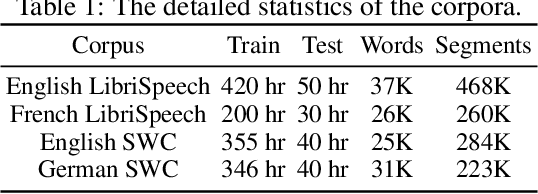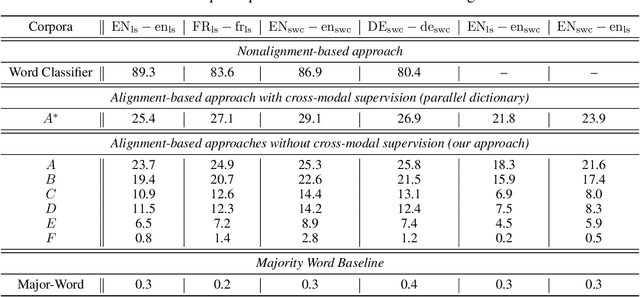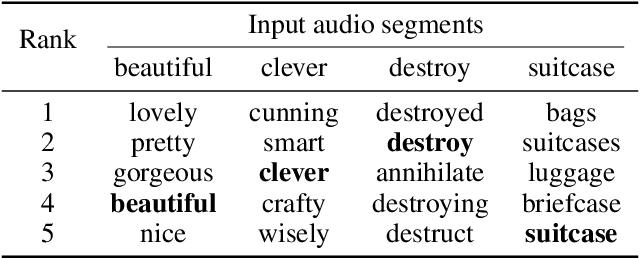Unsupervised Cross-Modal Alignment of Speech and Text Embedding Spaces
Paper and Code
Sep 20, 2018



Recent research has shown that word embedding spaces learned from text corpora of different languages can be aligned without any parallel data supervision. Inspired by the success in unsupervised cross-lingual word embeddings, in this paper we target learning a cross-modal alignment between the embedding spaces of speech and text learned from corpora of their respective modalities in an unsupervised fashion. The proposed framework learns the individual speech and text embedding spaces, and attempts to align the two spaces via adversarial training, followed by a refinement procedure. We show how our framework could be used to perform spoken word classification and translation, and the results on these two tasks demonstrate that the performance of our unsupervised alignment approach is comparable to its supervised counterpart. Our framework is especially useful for developing automatic speech recognition (ASR) and speech-to-text translation systems for low- or zero-resource languages, which have little parallel audio-text data for training modern supervised ASR and speech-to-text translation models, but account for the majority of the languages spoken across the world.
 Add to Chrome
Add to Chrome Add to Firefox
Add to Firefox Add to Edge
Add to Edge